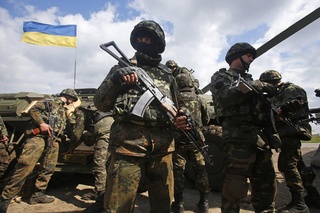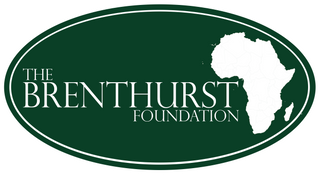News
A Juvenile, Tit-for-Tat Narrative Downplays the Impact and Reach of the War in Ukraine
Economic fallout and ethics mean SA cannot 'sit this one out'.

On Sunday 6 March, the Sunday Times' Deputy Editor, Makhudu Sefara, penned an opinion piece titled, The racist attitude of the West means this is not Africa's war. The article came at the end of a tumultuous week which saw several new developments emerge during the ongoing conflict: Russian aggression in Ukraine had escalated with an assault on Europe's largest nuclear power plant and reports of cluster munitions being used in civilian areas; refugees fleeing Ukraine had reached an estimated 1-million; and the United Nations General Assembly vote condemning Russia's aggression in Ukraine and demanding its withdrawal concluded with 141 members voting in favour, with five against it and thirty-five abstaining. South Africa was one of those who abstained.
The thesis of Mr Sefara's piece is that the South African government was correct to abstain from the UN General Assembly's vote, and that this war is fundamentally a European war. 'At a level of principle, we should be able to condemn Russian president Vladimir Putin for starting a war that is unnecessary', writes Sefara, adding, 'But, as I watched the pummelling of Ukraine, I thought the decision to sit it out was correct … In truth though, the war between Russia and Ukraine is Europe's war.'
Both arguments are short-sighted and downplay the scale and impact the war can have.
At the core of Mr Sefara's argument as to why South Africa's abstention was correct is a juvenile, tit-for-tat narrative around racism and mistreatment of the Global South. His thinking here is quite simple: 'Africa always gets the short end of the stick from the world. Africa must now prioritise itself.' He cites vaccine apartheid—the hoarding of vaccines by Western governments—and reports of 'spine-chillingly' racist treatment of African nationals attempting to flee Ukraine as two examples. After all, why should South Africa stand in solidarity with Europe (and the remainder of the 141 nations who voted against Russia's behaviour) when, as Sefara claims, 'Truth be told, when it comes to the crunch they drop us and pursue self-interest like we don't matter'? The logic borders on what can only be described as a disturbing you-get-what-you-deserve mentality.
Of course deliberately sitting on the fence is not inherently bad, but in this context it can be seen as a tacit sign of support for a warmonger. Many will speculate how the South African government's decision to abstain will come back to bite them. One area to observe closely is how the country's European partners engage with the country moving forward. Riina Kionka, who serves as the European Union's (EU) Ambassador to South Africa, tweeted her disappointment (and confusion) surrounding the South African government's decision to abstain. In her tweet she wrote 'We're puzzled because RSA sees itself and is seen by the world as a country championing human rights, international law and the rule of law.' It is important to emphasise that the EU is South Africa's largest trading partner — accounting for 22% of all the country's trade in 2021. Considering that the EU prides itself on its values of democracy and human rights, it is unclear how we intend to argue our shared stance considering recent events.
It is worth mentioning that this tit-for-tat narrative was not held by the majority of African governments, as seen by the fact that twenty-eight voted in favour of the UN General Assembly's resolution. Yes, the majority of African governments voted in favour while South Africa 'correctly' sat on the fence. Perhaps all twenty-eight governments are blind to the mistreatment they are receiving at the hands of Europe?
Dovetailing off of this argument, Mr Serafa believes that this is fundamentally Europe's war and that South Africa should turn its attention inward to focus on its own challenges instead: 'This, I say, is not our war … While everyone is focused on the war in Ukraine, we, in SA, also have many different wars we must wage at home … we should be focused on winning this war against unemployment'. Yes, the conflict in Ukraine is being fought on European soil and South Africa does face a myriad of challenges, unemployment being one of them. But the idea that the conflict exists in a European bubble and that South Africa can put its head down and focus on its own issues speaks to a gross misunderstanding of how the world operates.
For example, oil prices have spiked in the aftermath of both the conflict and sanctions imposed against Russia, reaching a high of $120 a barrel. This will likely result in an increase in the price of petrol, and as we know, an increase in the price of petrol has a ripple effect across the economy. Food and transport are just two areas of the economy which will feel the pinch of this increase. According to the U.K.'s National Institute for Economic and Social Research, $1-trillion could be wiped off the global economy by 2023 as a result of the conflict, and will negatively affect the economies of the UK and eurozone. As has already been mentioned, the EU is South Africa's largest trading partner, accounting for R669-billion in 2021, while trade with the UK measured R150-billion the same year. Trade with Russia was a meagre R15.2-billion by comparison.
To say that South Africa was right to sit on the fence because of the supposed mistreatment it has received relegates the country to the ranks of unscrupulous bottom-feeders who are incapable of taking a stand against inhumane actions. Meanwhile the argument that this is a war in which the South African government should not concern itself with completely overlooks the widespread ramifications it will have on the local economy. We may not be fighting this war, but it will affect us whether we like it or not. In many ways it is a global war and we cannot retreat from it.
This article originally appeared in The Sunday Times
Photo: Ministry of Defence Ukraine



